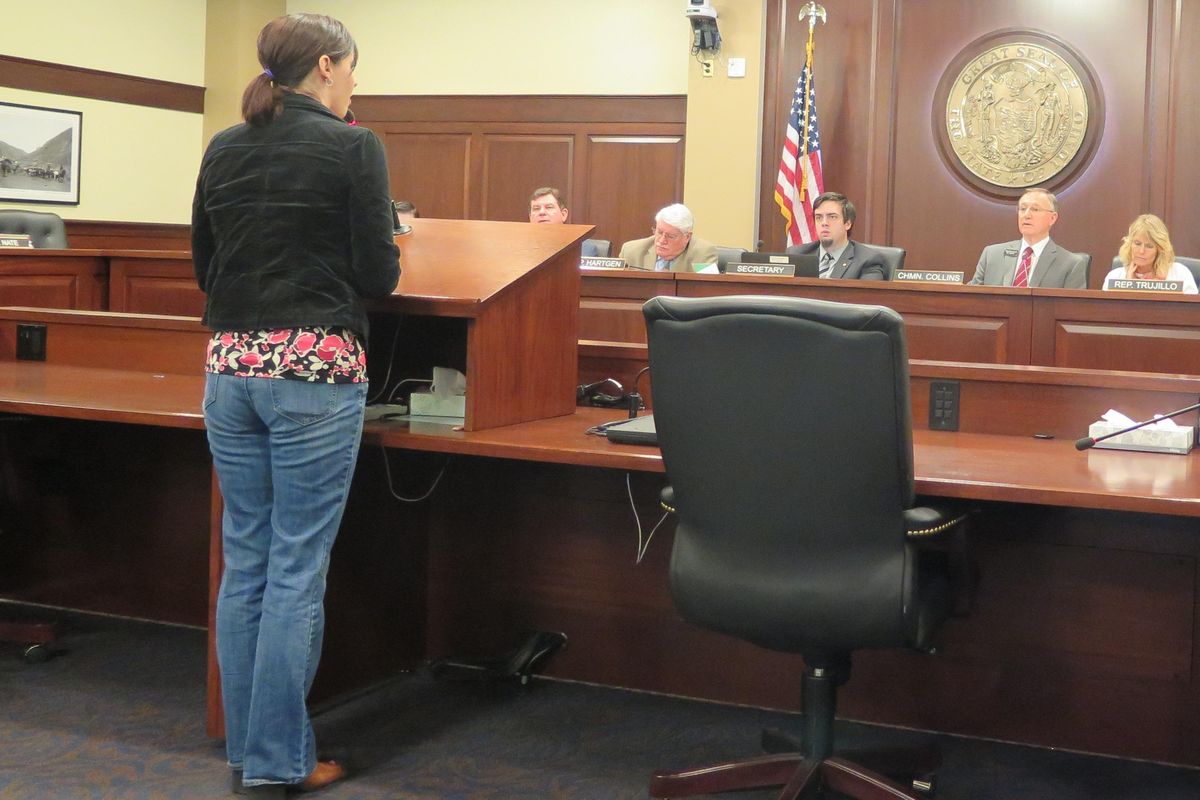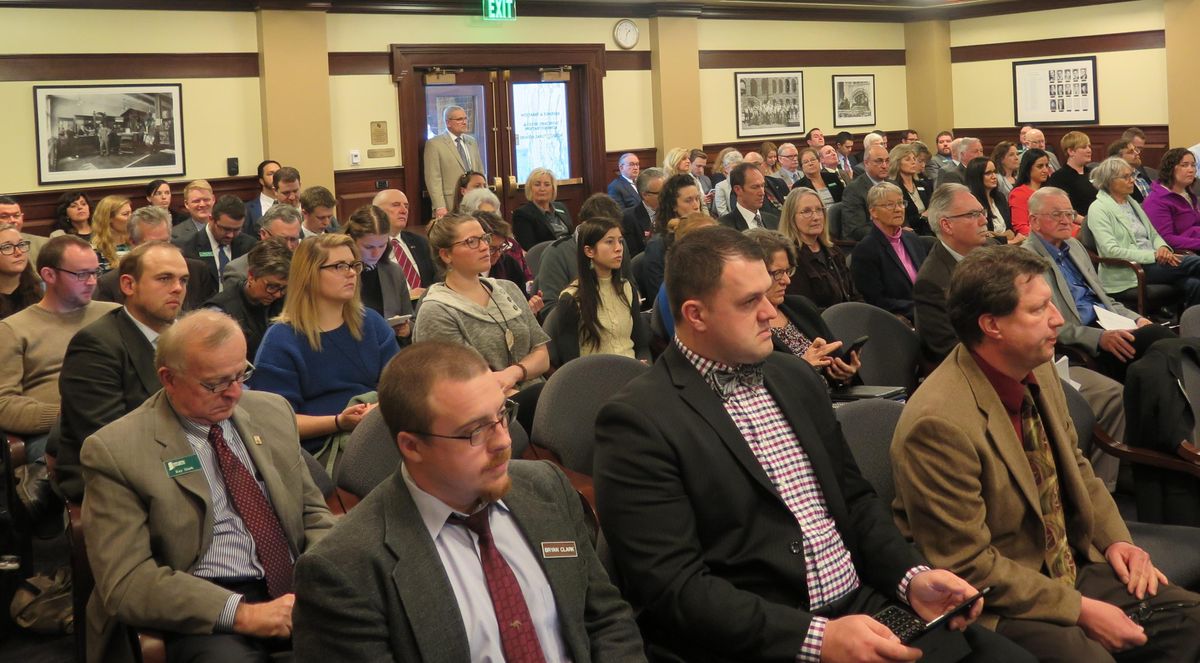Idaho lawmakers back repeal of sales tax on groceries, send bill to Gov. Otter
Tammy Nichols of Caldwell, a mother of four growing boys, tells lawmakers Monday, March 27, 2017 that she favors repealing Idaho’s grocery tax. She calculated her family would save $100 to $125 a month. (Betsy Z. Russell / SR)
BOISE - Gov. Butch Otter will have the final say on whether Idaho repeals it’s 6 percent sales tax on groceries.
He’s hinted he may veto it.
The grocery tax repeal, which already had cleared the Idaho Senate, passed the House Monday on an overwhelming 51-19 vote, after everyone who spoke at a hearing that afternoon supported the move.
“I’m one of your loyal taxpayers that live in your state,” Tammy Nichols of Caldwell, a mother of four, told the House Revenue and Taxation Committee. “I spend a lot of time at the grocery store, usually a couple times a week on average.” She estimated that the removal of the sales tax on groceries would save her family $100 to $125 a month.
“It would save many Idahoans a lot of money in order to provide what they need to be providing for their family,” Nichols said.
Steve Ackerman, an economics instructor at the College of Western Idaho who said he was speaking for himself, said the grocery tax repeal would benefit Idahoans more than an income tax cut.
“It is a larger savings per month and it is realized much earlier,” he told the lawmakers. “That’s going to help consumers.”
He said it also would boost the state’s economy.
“It’s very simple economics.” When shoppers are in stores, Ackerman said, “They know that they’re going to have a lower cost on their food bill. They will tend to buy more.”
He also noted that the bill passed the Senate with support from both Republicans and Democrats, and said “it’s a nice way to show a little bipartisanship.”
Representatives of groups ranging from the Idaho Freedom Foundation to the Idaho Interfaith Roundtable Against Hunger and the Idaho Farmers Market Association testified in favor of the bill.
And when it came time for the committee to vote, it was unanimous – 16-0.
The bill then headed to the full House, which was more divided, but still gave the measure overwhelming support, well beyond the two-thirds margin required to override a veto. However, if Otter waited until lawmakers finish their session and leave town – which they’re expected to do this week – he could veto the bill without fear of an override.
Thirty-seven states, including Washington, charge no sales taxes on groceries. Idaho lawmakers have long debated removing the tax from food, and when they raised it to its current 6 percent level a decade ago, they began offering Idahoans an expanded grocery tax credit, which can be claimed on income tax returns each year, to offset part of the cost. That credit increased each year for several years, and has now reached its peak at $100 a head for most Idahoans.
The legislation passed Monday would eliminate the grocery tax credit, covering most of the cost of removing the sales tax from food. It also would adjust the percentage of sales taxes that the state provides to local governments through revenue-sharing, to ensure that cities and counties don’t lose funding because of the change.
Otter says the state can’t afford the cost. The grocery tax credit currently pays out $147 million a year to Idaho taxpayers; the grocery tax collects about $194 million. The change in revenue-sharing is estimated to cost the state general fund roughly $25 million.
“People buy groceries in good times and bad,” Otter wrote in a March 16 letter to legislative leaders, “so the tax provides a steady source of revenue for the essential services of state government. As revenue fluctuates from less-stable sources it could be more difficult to fund our commitments.”
But lawmakers said in their debate Monday that taxing groceries is just plain wrong.
“I think it’s immoral,” said Rep. Brent Crane, R-Nampa. “I think it’s wrong to tax people on their food.”
Rep. Lynn Luker, R-Boise, agreed.
“We shouldn’t be taxing people for the very sustenance that they require to live,” he said. “It’s time to do this.”
The bill would be phased in over two years, diminishing its impact on the state budget. The grocery tax credit would be repealed on Jan. 1, 2018, to match the tax year. Idahoans would stop paying the 6 percent tax at the grocery store checkout on June 1, 2018. On July 1, 2018, the revenue-sharing allocation would change.
The bill started as a $52 million income tax cut that passed the House. But the Senate amended it, removing the income tax cut and replacing it with the grocery tax repeal.
That set up the final battle over taxes in this year’s legislative session as one between Otter and the GOP-dominated Legislature.
House Majority Leader Mike Moyle, R-Star, who pushed hard earlier for the income tax cut bill he authored, instead backed the grocery tax repeal on Monday.
“I hope that you can support the bill,” he told the House.

